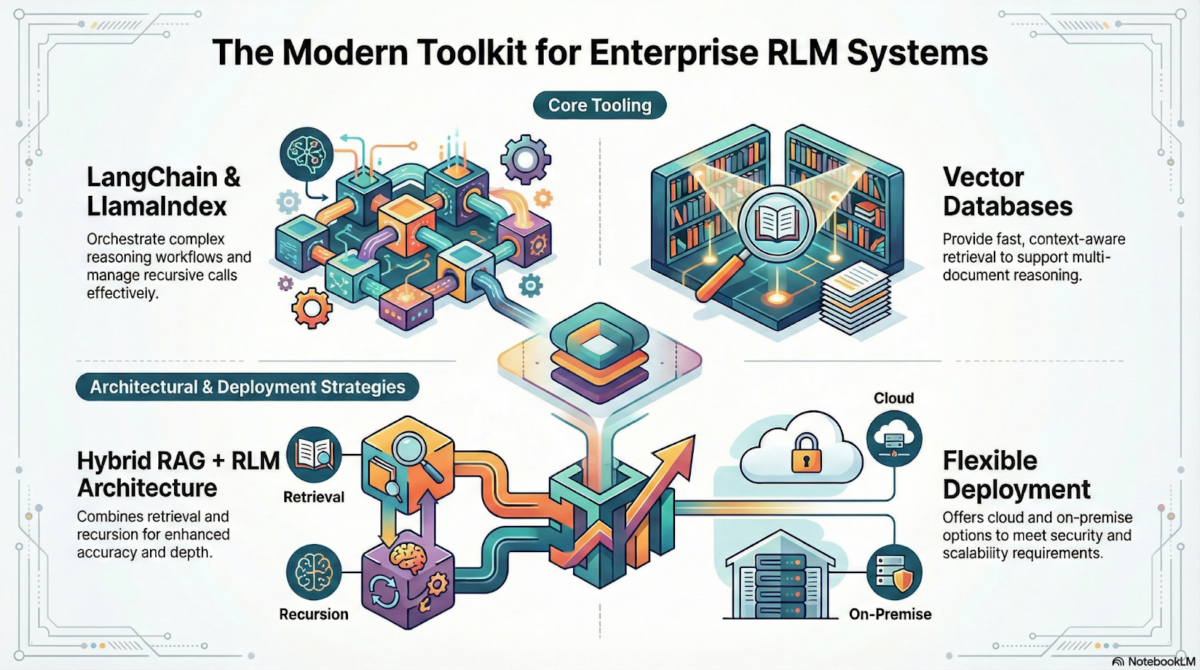Business scalability and sustainability are primary concerns in today’s dynamic business market and are significant contributors to rapid economic growth. Businesses are expanding across borders and using multiple resources for multiple projects under dedicated leadership. Therefore, outsourcing plays a crucial role in scaling and growing businesses, where teams can be utilized on various projects. Many industries are taking advantage of outsourcing their projects, which allows them to expand their business while maintaining quality throughout the project.
This article is written to help readers understand the origin and motivation for outsourcing and how this term has helped many manufacturing and IT industries scale and showcase their businesses globally. Some quality benefits and market challenges to overcome for the successful projection of their services, which helps to build a robust collaborative environment between the two parties.
What is Outsourcing? Definition & Understanding
Outsourcing is a contractual agreement for handing over the major or minor part of the project to speed up business operations to another company or third-party service provider. It helps delegate project power to another dedicated team of service providers to operate this specific project in-house. There are numerous factors for delegating projects under outsourcing terms, which we explain below in detail. Outsourcing played an impactful role in IT business scaling and enables companies to scale their businesses in more valuable ways.
C.K. Prahalad, a reputed business strategist and scholar, has significantly defined the term outsourcing, which is the best definition so far by any industrial expert.
“Outsourcing is the phenomenal process of contracting with another supplier or party to perform business operations in-house, to achieve cost reduction, ample skills, or push more business functions.”
Outsourcing has been growing since the 80s and now emerged as a billion-dollar industry covering the Information and Technology sector initially and, later on, approximately all industries to channel their business function with more reliable industrial suppliers.
Understanding IT Outsourcing & Business Outsourcing
IT sourcing is the broader term in outsourcing operations, which originated before the 20th century and is now spread globally. It was undertaken to share the minor IT tasks and maintain business operations that can be handled remotely, or for some experts who cannot travel to another country with mobility issues., Business outsourcing is the opposite of IT, where manufacturing businesses need a physical service team to complete their project. Hence, they decide to take advantage of local suppliers who have in-house teams to perform or manufacture the tasks maintaining high quality standards throughout the project.
Why Do Companies Need Outsourcing?
Outsourcing has become popular in the United States since the 90s and 20th century in outsourcing their IT projects to minimize their top-notch management cost. It is primarily focused on working on multiple projects and business expansion. There are other reasons why companies outsource their work in the United States, such as overhead prices of industrial professionals, energy and small-operation labor costs, and complicated government policies and rules & regulations.
In contrast, the ultimate reasons for outsourcing growth are covering more operations at limited costs, a collaborative team structure, a multi-cultural environment, the availability of top-notch experts, global business expansion opportunities, and pumped-up energy with minimal time wastage. Outsourcing culture has only been promoted by approximately 400% in the United States since 2010.
Outsourcing vs Offshoring
We often combine these two methodologies, outsourcing and offshoring, but eventually, both are different in their perspectives and operations. Offshore is defined as delegating the power and project operations to service suppliers based in another country. Offshoring is also considered a political term used to delegate operations to another country on a specific basis. Subsequently, outsourcing is entirely different, which only belongs to handling the project to any supplier to save labor costs.
Major Types of Outsourcing
1- Professional Outsourcing (PO)
The basic yet most demanded outsourcing of industrial professionals to assign them a lead generative business model for potential outputs. Professional outsourcing refers to the individual or group of professionals performing specific types of tasks with multitasking skills.
2- Business Process Outsourcing (BPO)
Business Process Outsourcing indicates contracting some basic fundamental operations to reduce operational and managerial costs, improve project quality, and optimize the time for completion within a decided period. Therefore, developed countries like the United States, Germany, the United Kingdom, and others can delegate the project to Asian continent countries such as Pakistan, India, the Philippines, Bangladesh, etc.
3- Knowledge Process Outsourcing (KPO)
One of the white-collar outsourcing comes under Knowledge Process Outsourcing (KPO) to allocate the best talent for crafting compelling business scalability and sustainability strategies and policies with critical analyses and marketing dynamics understanding to scale the businesses. In this category, people with more skills, education, and marketing experience are included.
4- Global Outsourcing (GO)
Outsourcing beyond borders, like offshoring, is considered a part of global outsourcing, where talent comes under the shade of various countries, nationalities, cultures, and religions. Therefore, it forms a diversified unit to accelerate the business channel for ultimate growth and successful projection.
5- Process-Specific Outsourcing
This outsourcing channel refers to a specific task and operation. It is usually delegated for short-term and mid-term goals and achievements, and can be locally allocated.
Top Four Reasons for Outsourcing
1- Cost Reduction
One significant role in extending the business model is minimizing its costs, whether operational or manufacturing. The core idea behind the outsourcing model is cost reduction in the project and assigning a minimal or significant portion to the dedicated and efficient team to scale the business model.
2- Efficiency Optimization
The second and most important reason is that outsourcing can optimize the project efficiently by allowing the delegating teams to perform freely and accurately within the guidelines. This provided information and guidelines help the teams acquire positive and quality results and complete the project within time.
3-Enhance Project Speed
Collaborative team efforts from both ends can speed up task completion, and sharing the performance chart can help them evaluate the potential output to streamline their tasks. Outsourcing is vital in accelerating project assignments and delegating powers with dedicated teams.
4- Parallel Working
Two-way efficiency brings positive and precise results for completing assignments in calculated teams. Two teams can manage the workload and operations collaboratively by sharing relevant information and instructions for the project. Parallel working is becoming popular as it has shown great results and optimized outputs in recent times.
Benefits of Reliable Outsourcing
1- Cost-cutting Edge
The primary goal of outsourcing is to cut costs and make the project profitable using all outsourced resources. Teams can only accomplish this goal when they craft the right strategy for their business and evaluate the best-fit supplier team for speedy business operations and project completion within a fixed period. Using offshore outsourcing can elevate the chances of overcoming unnecessary operational costs and managing work with cultural diversity.
2- Multiple Project Tasking
Outsourcing has diversified businesses, encouraged the managing team to win more projects, and compiled a dedicated global team enriched with multitask-performing activities. It has also enhanced the project lifecycle to integrate more projects depending on their length, i.e., short, mid, or long-term projects. Companies can work on multiple projects once they build a dedicated team to perform and execute the best results.
3- Better Use of Resource Allocation
The right team can multitask in a collaborative environment and extract result-oriented performance while working with limited resources. The team manager or leader can evaluate the top performers who can generate more value and productivity. Therefore, they should be able to match the task performer with the task’s specifications. Some companies hire workers with offshore models to evaluate the other side’s resources that benefit their project.
4- Collaboration Among New Teams
Outsourcing has emerged as a collaborative team structure for performing scalable tasks in a decided period to boost sustainability. This flexibility assures collaboration among multicultural workers from remote areas of other countries associated solely with project performance, which leads them to interact and engage with other teams more collaboratively to form a professional bond among two or multiple teams.
Outsourcing Drawbacks
1- Inefficient Control Over Resources
The project team can better evaluate the task division and the resonating talent to perform these crucial tasks under controlled supervision. However, something inefficient may happen, such as resource unavailability or incompetence to perform a specific role and the inability to handle the pressure of multitasking. Being a remote supervisor, the team cannot monitor the project performance in a calculated and analytical way. Therefore, delegating teams cannot ascertain the completion and performance of their workers in a controlled manner.
2- Misunderstanding Between Collaborative Teams
Some projects can be complex and crucial in their own right, but once a misunderstanding occurs, it can damage the progress chart. The deadline team can share helpful information with the performing team, but if these resources are unavailable, it cannot help them re-inform or re-arrange the project line, which costs them in the form of project failure. A team should proofread the instructions before delegating the projects to outsourcing teams.
3- Unequal Team Management
Delegating project power and dividing tasks can be challenging for the project handling team, as they must list the resonating talent and potential workers according to their tasks. Inequality brings damage and observes terrible performance, which ultimately hurts the project deadline. Team members should be assigned tasks to perform and get good business growth and expansion results.
4- Cybersecurity and Data Threats
The primary responsibility and checklist indicate that company data should be protected, or strong measures should be taken to restrict delegating powers. Many companies have observed data threats and project failures due to cybersecurity issues that need to be tackled by the delegating teams. Outsourcing the powers carries a significant risk, and it can be challenging to control the teams effectively. Therefore, companies should protect their data and ensure the teams before assigning them the project so that they do not threaten the parent team.
Outsourcing Example
Let us share an easy example to understand outsourcing better. For instance, many countries have hired third parties to facilitate visa applicants’ streamlining of operations. Many countries, such as the United States, English countries, and Europe, attract millions of visitors annually. Therefore, many European countries have entitled their third-party agencies to operate on behalf of embassies to support them in evaluating the files and facilitating them in visa application and verification of documents before the final interview call at the embassy, which is helping them to reduce the rush and cost of their abundant employees in their operation countries.
What Are Future Trends of Outsourcing?
Outsourcing has reached phenomenal success and covers major industries to scale and boost their project performance with dedicated team members. The IT industry started outsourcing its mini projects in the early 80s and 90s. Still, the growth has been observed in the starting years of the 21st century, where it is standing with impressive numbers of billion-dollar industries in the world. Outsourcing helps businesses team up with new potential workers and industry professionals who can analyze the business performance and future of their desired expansion in the competitive market.
Some research has shown a steady graph of the rising outsourcing industry, and almost all industries benefit from this technique. IT outsourcing is one of the biggest industries for outsourcing projects; afterward, the marketing and operational industries (supply chain and retail) are getting popular with outsourcing their integrations.
Frequently Asked Questions (FAQs)
Q. Why do companies choose to outsource work?
Companies need their operations aligned and expert workers at minimal cost. The ultimate desire of any business is to cut costs and put the best potential in their team to form a collaborative environment. This collaboration helps them streamline their projects and mini-tasks with abundant global talent with cultural diversity.
Q. What term is used to describe the outsourcing of logistics?
Third-party logistics is the broader term used in logistics outsourcing. It involves leveraging the logistics business and assisting it in scaling its transportation within the specific local domain and across borders. It is the best model of outsourcing in the supply chain and retail business management to streamline their operations and order deliveries.
Q. What is global outsourcing?
It is the widest term used in the outsourcing model to scale and assign business operations across the globe, genuinely focusing on flexibility and sustainability terms. It also refers to hiring the best talent from another country, depending on their specific abilities, and transforming their work into valuable and innovative skills. Global outsourcing also encourages worldwide talent and mobility when needed.
Q. What is an HR outsourcing service?
HR outsourcing is one of the most used outsourcing services for placing talent into helpful positions. The right positioning makes it versatile to hunt potential talent and allocate its services worldwide so teams can reliably complete their operations.
The Bottom Line
Over the period, outsourcing has become popular in streamlining business operations and strategies to scale businesses globally. Many outsourcing services help the teams hunt talent and assign tasks according to their abilities and multitasking skills to enhance the project power. Some research has shown the growth within two decades, it has become a billion-dollar industry with scalable formations, strategies, and streamlining functions to support the business channel. The IT and Telecoms industry is adopting this method to outsource their infrastructure and operations to third parties in billing, management, and marketing resources.








